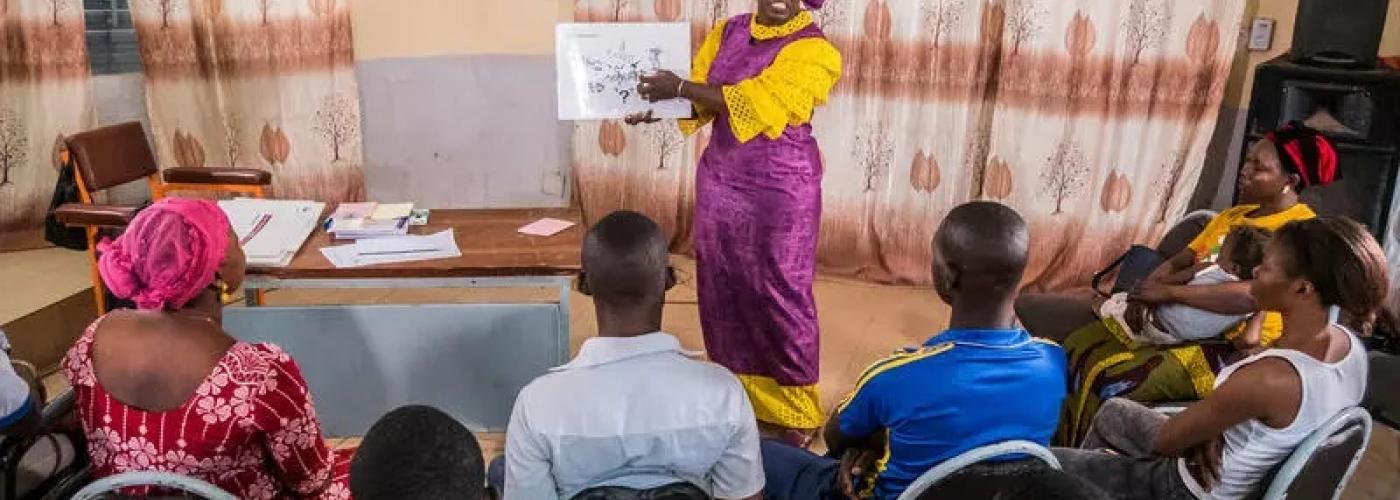Burkinabé Youth Reenvision the Concept of “Career”
Image

This post was authored by Becky Neely and is part of Marketlinks' and Agrilinks' joint Youth Employment Month. It originally appeared on Agrilinks.
Have you ever thought about your career as a lifelong project? That’s how over 2,000 young people in western Burkina Faso define their professional journey.
The population in Burkina Faso, a landlocked country in West Africa, is growing fast: 67% are under age 25. The formal educational system can’t cope with the volume. According to a survey, only 4.5% of the population aged 16 to 64 have received technical and vocational education and training. Most end up working in subsistence agriculture and depend on a good harvest to stay out of extreme poverty.
In a vocational project implemented by Helvetas, Burkinabé aged 15 to 35 — most of whom have not had access to a formal education or employment — initiate projects to meet their basic needs, but also to be inspired and have a source of pride throughout their lives.
These young people come from an area in the west of Burkina Faso, between Bobo-Dioulasso (the country’s second largest city) and Banfora. This region has plentiful opportunities for jobs in the agro-silvo-pastoral sectors, but young people can’t take advantage of them because there is a mismatch between skills and labor market needs.
Placing aspirations at the center
Young people began learning about the project through the radio soon after it started in 2020. The project team also toured villages to meet communities and explain the initiative.
The first step for interested youth is filling out a questionnaire. Project participants describe their motivations, interests, living situation and resources. For example: “What do you want to do in life?” or “What are you missing: equipment, training, land, a co-investor or financial resources?”
Based on their questionnaires, participants then begin to identify and define their life projects. A life project is a road map that guides a young person toward their desired future by making the best of their talent, existing knowledge and resources. For example, a young woman without any formal education might initially appear to be at an extreme disadvantage, but she could have a lot of experience running a household, building relationships and managing tough situations — skills that are a tremendous asset for an entrepreneur.
The vocational program’s approach does not simply train young people according to a predefined program or match them with available jobs — it goes much further, helping them find a path that makes them feel fulfilled and is responsive to the demands of the market. It also involves families and communities in the process of formulating and carrying out these projects.
Engaging local champions
Another key to the project’s success is local service providers.
Service providers are local champions who are running their own successful businesses. Through the project, they learn the basics of training and coaching participants on defining their project and developing business skills. They then support young participants in setting up and strengthening their new business.
One of the big advantages of the local service providers is that they help bring training to the participants’ homes rather than asking them to travel to a city. This can be crucial for teenagers or young women, who might struggle to get permission from their parents or husbands to leave the village.
Gearing up for the life project
Training by local service providers equips young people with a technical background, while also strengthening their personal and relational skills.
This training is done in two stages. The first is a theoretical part that lasts a maximum of one week, making it accessible to more people. Next is the practical component, where each young person learns the trade related to their chosen industry in a company or in a training center. After this hands-on experience, the company or trainers will spend a month coaching the aspiring entrepreneurs while they set up their own venture. Youth who have not yet made up their mind about their future will be offered the opportunity to learn from short internships in local companies.
About the project
Out of 2,000 young people involved in the project, over 700 rural, urban and peri-urban youth have already found their path as entrepreneurs. The project continues through 2022.


